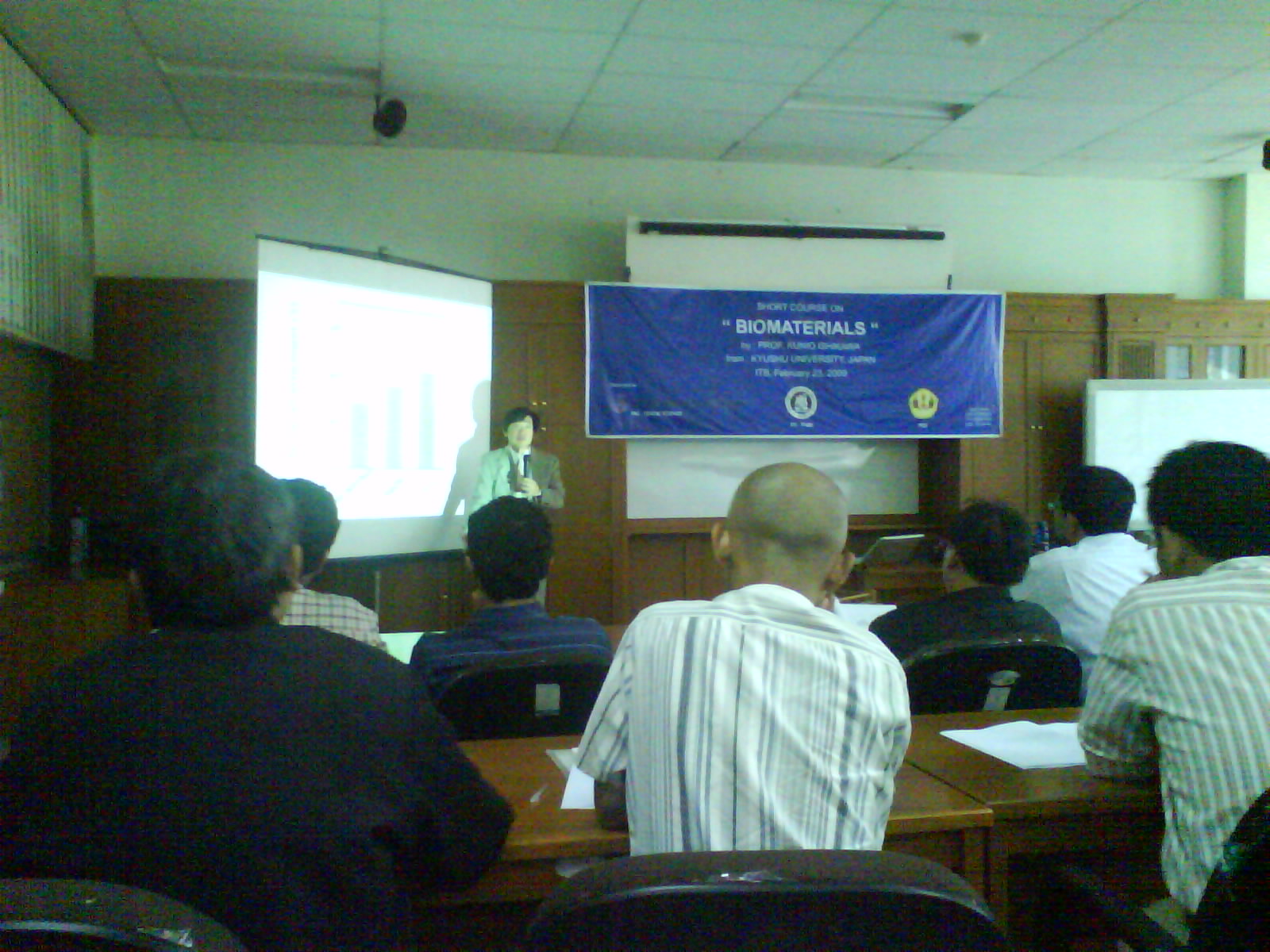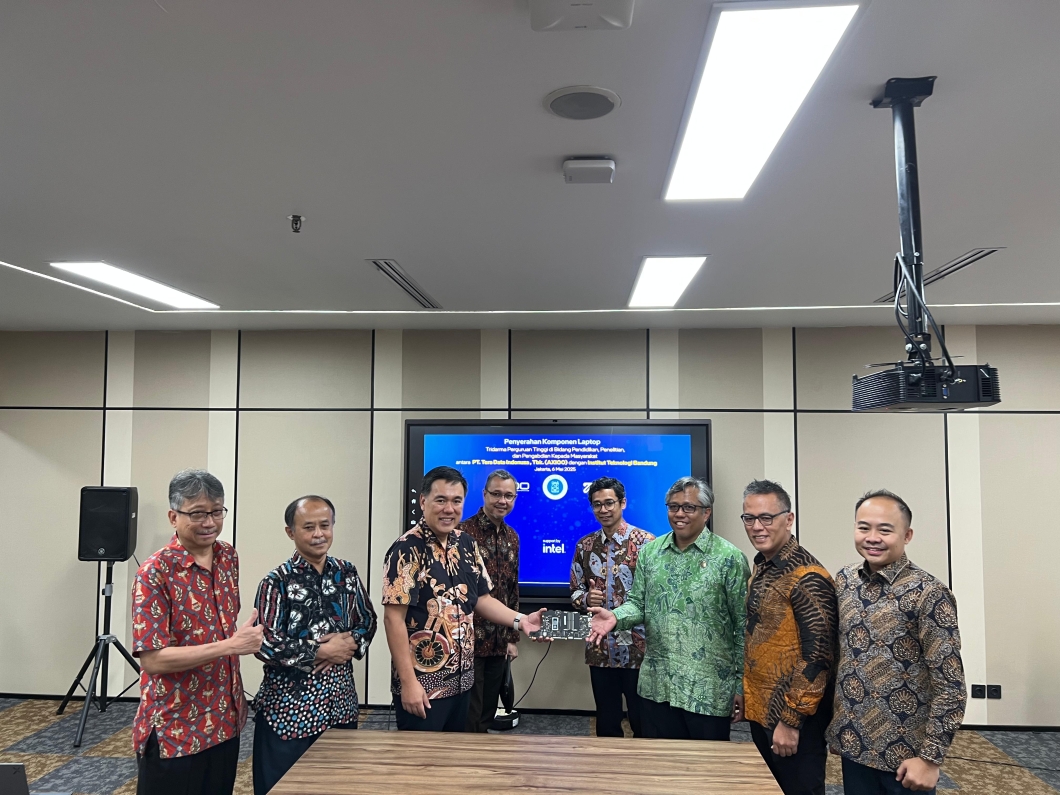"Biomaterials", Prof.Kunio Ishikawa Short Lectures
By asni jatiningasih
Editor asni jatiningasih

 BANDUNG, itb.ac.id- Prof.Kunio Ishikawa, Kyushu University of Japan, on Monday (23 / 2) delivered the lecture in topic of "Biomaterials". Lectures that took place in the Multimedia Room, 2nd Floor of ITB Engineering Physics Studies Program is established on the joint of Faculty-Dental Science, Kyushu University, Faculty of Industrial Technology (FTI) and the Faculty of Mechanical Engineering and Aerospace (FTMD) ITB, and the Faculty of Dentistry (FKG) Unpad.
BANDUNG, itb.ac.id- Prof.Kunio Ishikawa, Kyushu University of Japan, on Monday (23 / 2) delivered the lecture in topic of "Biomaterials". Lectures that took place in the Multimedia Room, 2nd Floor of ITB Engineering Physics Studies Program is established on the joint of Faculty-Dental Science, Kyushu University, Faculty of Industrial Technology (FTI) and the Faculty of Mechanical Engineering and Aerospace (FTMD) ITB, and the Faculty of Dentistry (FKG) Unpad. Biomaterials is a synthetic material used to replace part of living system or to function in intimate contact with living tissues. Biomaterials is essentially material from biological materials; any substances (other than drug) or combination of subtances, synthetic or natural in origin, which can be used for any period of time, as a whole or as a part of system which threats, augments, or replaces any tissue, organ, or function of the body.
However, as Prof.Kunio said, biomaterials has shortcomings. Unlike organ that has a complex function, biomaterial has only a single function. Then, the tissue response to the biomaterial is usually a toxic response and a foreign body response.
In reconstruction of bone defects, category of bone related materials such as Titanium (Ti), Apatite (Ca10 (PO4)6(OH)2), and Bone Morphogenic protein (BMP). On Ti, the bone fill form slowly, fibrous tissue is observed between bone and the materials. On apatite, the bones will form quickly, the material will bond directly with the bones. On BMP, the fat cells will be de-differentiation, that is growth factor that induces bone nonossious site. The reconstruction procedure for bone defect such as autograft, allograft, and xenograft. The artificial bone (Artificial bone filler), such as hydroxyapatite (that is similiar to human bones) and carbonateapatite (that is a composition of human bone). In the chemical reaction, carbonate apatite is the most stable phase thermodynamically. Hard tissue on vertebrate is apatite. Fabrication of carbonate apatite block is fabrication of calcium carbonate block and transformation to carbonate apatite.
In his short course, Prof.Kunio said that the key success in biomaterial research is the intimate collaboration between engineers, chemist, and doctor.

.jpg)
.jpg)
.jpg)
.jpg)
.png)


